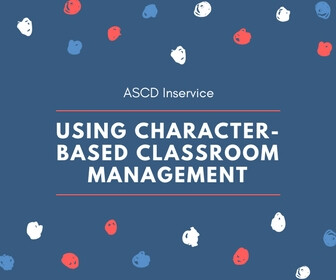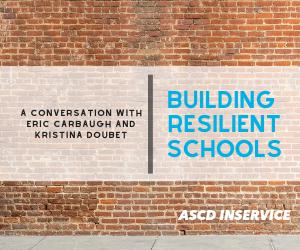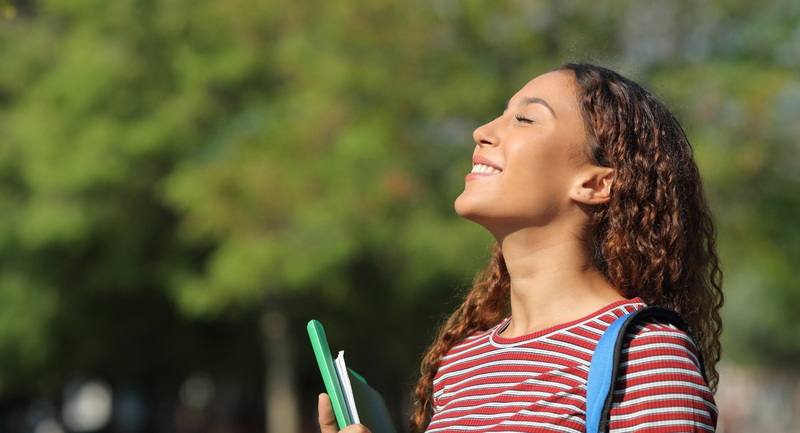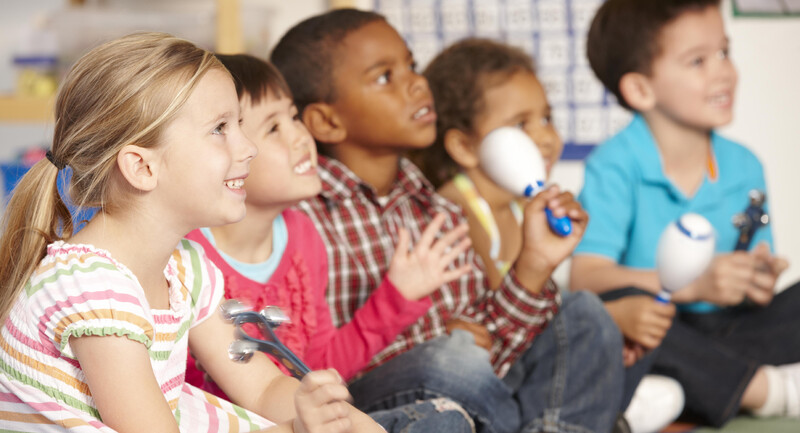As the second semester of the 2019-2020 school year started in January, we were excited to know that Lakeside Middle School in Millville, Cumberland County, New Jersey would begin its third semester of implementing our Wellness Studies Program, a new approach to health education that combines well-known (if mostly supplementary) school-based “wellness” activities into a single, unified learning experience.
In the spring of 2019, Title 1 Lakeside, led by principal Spike Cook, EdD, had put in place for its AVID students our program of monthly workshops in mindfulness, nutrition and kitchen skills, fitness and nature education. Partnering with the Cumberland County Improvement Authority, our advisor Kate Tumelty Felice, EdD, a faculty member at the nearby Rowan College of South Jersey, brought together Wellness in the School from New York, the Holistic Life Foundation of Baltimore, the regional Inspira Health System, and Cumberland County’s environmental agency. Dr. Felice organized the workshops in a mutually reinforcing framework and integrated the learning with the state’s SEL guidance to address adverse childhood experiences.
Put in place as part of Lakeside’s daily activities, the program was also added to its after-school curriculum. Then at the request of the local office of the 21st Century Community Learning Center program (2stCCLC), the U.S. Department of Education’s initiative that supports K-12 after-school learning, three other middle schools in Cumberland County added the WSP. The ensuing end-of-semester assessment by the 2stCCLC was gratifying, to say the least:
“Overall, across every domain, students reported more knowledge, increased positive behavior, and more self-awareness, from pre- to post- surveys. The 21st CCLC Health and Wellness Program appears to have made a significant difference for the participants of this project.”
So we were thrilled when Dr. Cook asked to repeat the program at Lakeside for 2019-2020 and we started to get interest from other schools. All of which came to a screeching but necessary halt last March. Like everyone else we asked: “How can we do this online?” Our response was two-fold:
- To explore how to support online – somehow – the social, emotional and mental health benefits and subject knowledge attained during those in-person, hands-on interactions of working together in gardens, kitchens and gyms. How do you put those levers of experiential learning into the hands of kids themselves? Is this even possible in the digitally distanced era of Covid-19?
- Thinking of the time ahead when schools do reopen, we asked: How can we help educators prepare to welcome back families and faculties with methods and tools that can help mitigate the unprecedented levels of stress, trauma and anxiety that they will surely bring with them?
Virtual Serendipity
In the first case: As it has elsewhere, Covid-19 presented an unexpected opportunity. In January, the Whole Health Institute and Chopra Research Library was formed by philanthropist Alice Walton and is based in Bentonville, Arkansas. The mission of the Institute is to help people live a full and meaningful life by making the Whole Health approach affordable and accessible to everyone. The Institute will focus its work on transforming health and well-being by working off the model created and established within the VA, the nation’s largest healthcare system. The creator and leader of the VA’s Whole Health program, Tracy Gaudet, MD, is now leading the Whole Health Institute and Chopra Research Library. (See more about this person-centered model of care here.)
Covid-19 arose just in time to sideline WHI’s plans for deploying its healthcare delivery program. Because the leadership of both our organizations share roots in integrative health, we had several conversations about our shared perspectives on whole health. This led to creation of a project that taps the intersection of our common interests and related approaches in whole person well-being for kids. As Dr. Gaudet explained in a May interview:
“We didn’t have this area of K-12 education highlighted originally. But with all of the trauma of uncertainty and fear around COVID I dread that we are creating a whole new generation of kids with ACEs (Adverse Childhood Experiences). We shifted because of COVID and because we have the right partner.”
(Among other things the project includes figuring out how tools of creative online expression kids are using might become digital variations of those “levers of experiential learning” usually found in the garden or teaching kitchen.)
Balancing academics and well-being for the reopening
In the second case: This summer we are facilitating stakeholder discussions to explore how to bring educators up to speed on the outcomes that whole health wellness programs have attained in helping to mitigate mental, emotional, behavioral (MEB) health deficits that are being so terribly exacerbated by Covid-19. On May 5, the AAP issued guidance in its paper, “COVID-19 Planning Considerations: Return to In-person Education in Schools” that sets the stage for this discussions. From its section of Education:
“It is also critical to maintain a balanced curriculum with continued physical education and other learning experiences rather than an exclusive emphasis on core subject areas…”
“If the academic expectations are unrealistic, school will likely become a source of further distress for students (and educators).”
Our partners’ and associates’ work in gardens, teaching kitchens, mindfulness and brain breaks surely fall into those “other learning experiences.” While the practitioners and researchers in those school-based wellness programs have been producing a growing body of literature showing favorable mental and physical health outcomes, those qualities and their reinforcing relationships with SEL and Whole Child practices are not yet widely known or well understood.
We hope our conversations will lay out this array of learning options that have been well established on and around K-12 campuses over many years, if well outside the classroom and lecture tradition. And that we can formulate ideas and recommendations that educators will have the time to reflect on and consider as they prepare to welcome back students, families and faculty in the months ahead.
About the author
Taylor Walsh is the founder and director of WholeHealthED. He was a pioneer in the formation of digital information and online community services. Most recently, he has been a media strategist in integrative medicine and health, where he organized a national network of state-licensed practitioners seeking insurance reimbursement for patients opting for teatments with acupuncture, massage therapy, naturopathic medicine, mind body and other licensed options that are chosen by more than 35 million Americans each year. Follow him on Twitter at @taylorw.







